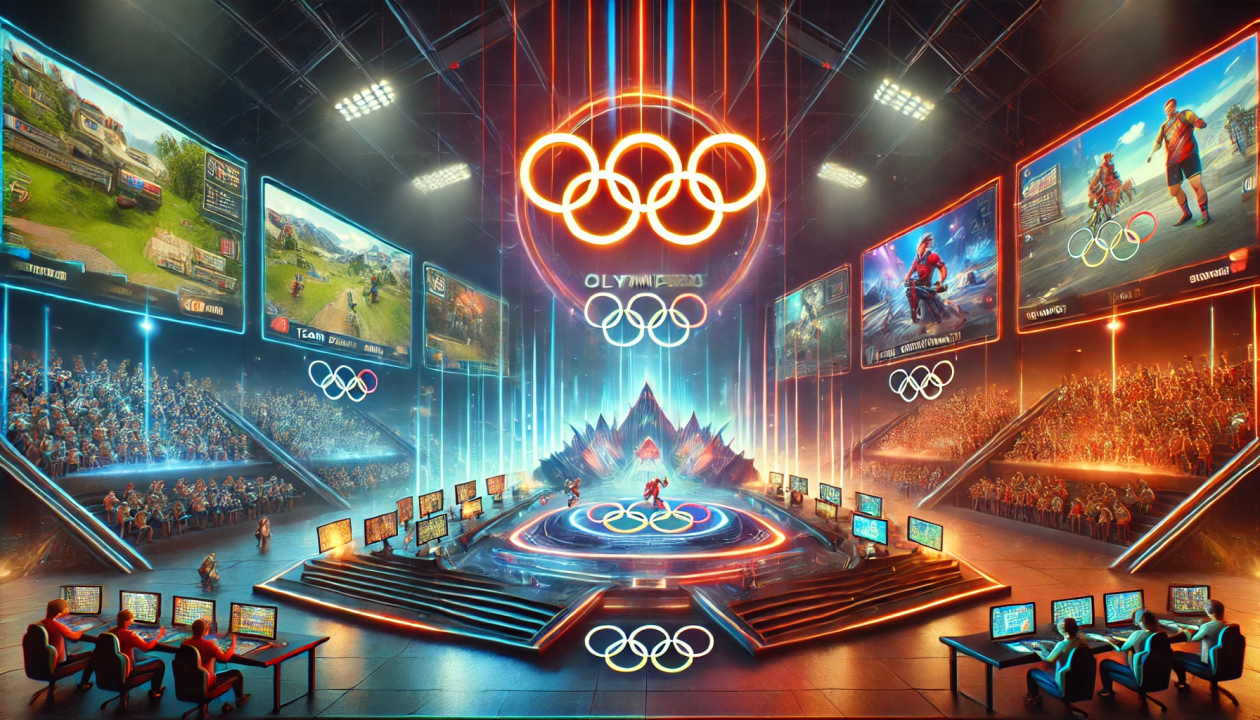From Joystick to Gold Medal?
What once started in college dorms and internet cafés is now making its way to the world's most prestigious sporting stage—the Olympics. That’s right—E-sports are evolving into Olympic-level events, blurring the lines between traditional sports and digital competition.
But how did competitive gaming get here? And what does it mean for the future of sports?
The Evolution of E-Sports as a Global Sport
E-sports has exploded globally with:
-
Millions of professional and semi-pro players
-
Stadium-packed tournaments
-
Brand sponsorships rivaling traditional sports
-
Streaming viewership beating cable TV ratings
With games demanding strategy, reflexes, endurance, and mental strength, many now recognize E-sports as a legitimate form of athletic competition.
The IOC’s (International Olympic Committee) Entry into E-Sports
In 2023, the IOC officially hosted the Olympic E-sports Week in Singapore, featuring:
-
Archery (via Tic Tac Bow)
-
Cycling (via Zwift)
-
Tennis (via Tennis Clash)
-
Taekwondo (via Virtual Taekwondo)
-
Chess, Sailing, Baseball, and more via digital simulations
This marked a major leap toward blending traditional Olympic values with emerging digital formats.
Why E-Sports Deserve Olympic Status
1. High Skill and Training Demands
Top players train for 6–10 hours daily, maintain strict diets, and undergo sports psychology coaching—just like Olympians.
2. International Representation
E-sports tournaments already feature teams from over 100+ countries, promoting global sportsmanship and unity.
3. Youth Engagement
The average Olympic viewer is over 40. E-sports attract younger demographics, making it essential for the Olympic movement's future relevance.
4. Gender Inclusivity and Accessibility
Unlike traditional sports, E-sports are:
-
Less restricted by gender
-
Accessible to people with disabilities
-
Low-cost to enter (especially mobile gaming)
5. Audience and Revenue Power
The global E-sports audience exceeds 500 million viewers and generates billions in revenue—making it an economic and cultural force.
Popular E-Sports Games Gaining International Attention
-
League of Legends
-
Valorant
-
Dota 2
-
Counter-Strike
-
FIFA eSports
-
BGMI / PUBG Mobile
-
Overwatch
-
Rocket League
While Olympic events are focusing on simulation-style games for now, the momentum could eventually lead to mainstream E-sports titles gaining Olympic legitimacy.
Challenges Facing Olympic-Level E-Sports
Despite the rise, E-sports face hurdles:
-
Game Violence Concerns: IOC prefers non-violent titles, limiting options.
-
IP Ownership: Games are owned by corporations, unlike sports like football.
-
Standardization Issues: Frequent game updates and patches can change gameplay dynamics.
-
Integrity & Doping: Like physical sports, E-sports must guard against cheating and performance-enhancing drug use.
However, these issues are being actively addressed through regulation, ethical charters, and standardized competition formats.
What This Means for E-Sports Athletes
Recognition by the Olympic community:
-
Validates E-sports as real, respectable, and rewarding
-
Opens doors to national funding, scholarships, and structured training
-
Encourages parental and institutional support
-
Makes E-sports a viable career path in countries like India, South Korea, the US, and beyond
The Future: Virtual Olympics?
We may soon witness:
-
Mixed-reality Olympics, blending physical skill with digital performance
-
AR/VR-based competitive formats
-
Crossovers between traditional sports and gaming fandoms
-
Athlete training using gamified systems
E-Sports Are Here to Stay
From niche hobby to billion-dollar spectacle, E-sports has arrived at the Olympic doorstep. As technology and tradition merge, the next generation of Olympic athletes might wear jerseys instead of tracksuits, and headsets instead of helmets.
The future of sport isn’t just on the field—it’s also on the screen.




Comments (0)